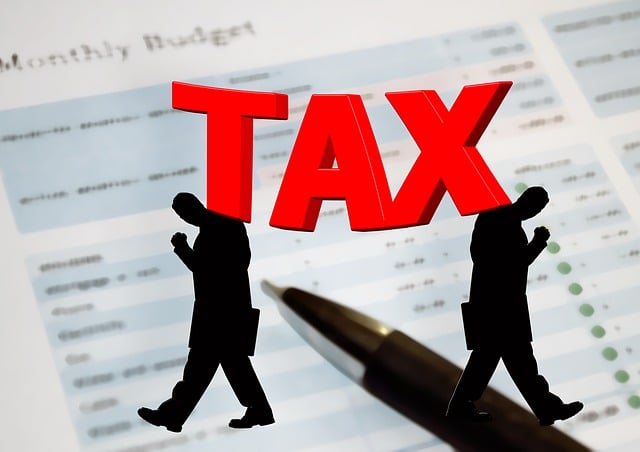navaling tax strategies is a pivotal aspect of securing a robust financial future, particularly in the realm of retirement planning. As individuals and entrepreneurs alike progress towards their golden years, harnessing tax-efficient investments becomes increasingly crucial. This article delves into the multifaceted approach required to optimize retirement wealth while minimizing tax exposure. From leveraging entrepreneurial ventures’ unique tax advantages to mastering year-end tax planning for maximizing deductions, and beyond, we explore the full spectrum of strategies that can bolster your financial portfolio. Key topics include the utilization of tax-deferred investments to enhance retirement savings and the implementation of advanced tactics to navigate the complexities of tax minimization post-retirement. Entrepreneurs, in particular, will discover actionable insights on maximizing tax benefits for their endeavors, ensuring that their retirement planning is not only effective but also tax-wise. With a focus on retirement tax planning and strategic investment choices, this article aims to empower readers with the knowledge to secure their financial future.
- Leveraging Tax Benefits for Entrepreneurs: Maximizing Retirement Wealth
- – Exploring tax-efficient investment opportunities specific to entrepreneurs and business owners.
- – Discussing how entrepreneurial ventures can contribute to retirement planning while leveraging tax advantages.
Leveraging Tax Benefits for Entrepreneurs: Maximizing Retirement Wealth

Entrepreneurs have a unique opportunity to leverage tax benefits that can significantly enhance their retirement wealth. By carefully considering year-end tax planning, they can maximize tax deductions and position themselves favorably for the upcoming fiscal year. Strategic financial decisions, such as investing in tax-deferred investment vehicles, allow entrepreneurs to defer taxes on income and capital gains until a later date, often after retirement. This tactical approach not only reduces current tax liabilities but also enables compound growth of investments over time.
Retirement tax planning is a critical component of this strategy. Entrepreneurs should explore various accounts and plans that offer tax advantages, such as Roth IRAs, traditional IRAs, 401(k)s, and SEP IRAs. By understanding the nuances of each and how they align with one’s financial goals, entrepreneurs can effectively manage their tax exposure. Additionally, employing tax minimization techniques throughout the year, including timing income and deductions, can further optimize an entrepreneur’s tax situation. This proactive approach to tax planning ensures that as entrepreneurs build their business empires, they also secure a tax-efficient future for retirement.
– Exploring tax-efficient investment opportunities specific to entrepreneurs and business owners.

Entrepreneurs and business owners have unique opportunities to leverage tax-efficient investment strategies that align with their entrepreneurial spirit. By exploring specialized investment vehicles such as self-directed retirement plans, entrepreneurs can harness significant tax benefits for entrepreneurs. These plans not only facilitate the growth of wealth but also allow for investments in ventures that align with their business acumen and risk profile. Year-end tax planning is a critical component of this strategy, as it involves timing income and deductions to optimize tax obligations. This proactive approach ensures that entrepreneurs maximize their tax deductions before the fiscal year concludes, positioning them to minimize their tax liability and enhance their financial standing.
Moreover, business owners should consider the advantages of tax-deferred investments, which can significantly impact retirement tax planning. These investments delay the recognition of income until a later date, thereby reducing current year taxes. By strategically placing assets in vehicles that offer tax deferral, entrepreneurs can compound their investment returns at a higher rate, as the growth is not eroded by annual taxes. Implementing these tax minimization techniques requires careful planning and a deep understanding of the current tax code. It involves not only identifying the right investment opportunities but also understanding how to structure those investments in a way that shields income from premature taxation. This holistic approach to tax optimization ensures that business owners can protect and grow their wealth over time, setting the stage for a secure retirement.
– Discussing how entrepreneurial ventures can contribute to retirement planning while leveraging tax advantages.

Entrepreneurial ventures present a unique opportunity for individuals to contribute to their retirement planning while simultaneously leveraging tax advantages. For those who have embarked on the entrepreneurial journey, the business can be an instrumental tool in one’s retirement strategy. By carefully structuring the business and its operations with an eye towards retirement tax planning, entrepreneurs can maximize tax benefits for themselves and their employees. Year-end tax planning is a pivotal time for such entrepreneurs to review their financial strategies, ensuring that they are making the most of tax deductions and credits available to them. Strategic decisions, like converting business income into tax-deferred investments through various retirement plans, can significantly reduce immediate tax liabilities while setting aside funds for future use.
Maximizing tax deductions isn’t just about reducing current tax burdens; it’s also a critical component of long-term financial health. Tax minimization techniques, such as deferring income and accelerating deductions, can enhance the compounding power of retirement savings. Entrepreneurs can utilize these strategies by establishing specific types of retirement plans tailored to their business model, which often come with attractive tax incentives. By integrating these tax-savvy approaches into their overall retirement planning, entrepreneurs can not only shield their earnings from excessive taxation but also ensure that their business contributions are part of a robust financial plan for the future, thereby securing their wealth against the erosive effects of taxes over time.
In conclusion, prudent retirement planning hinges on a multifaceted approach that encompasses maximizing tax benefits for entrepreneurs. By engaging in year-end tax planning and exploiting tax-deferred investments, individuals can strategically position their assets to minimize tax burdens. These proactive measures, integral to comprehensive tax minimization techniques, are key to preserving and enhancing one’s financial standing into retirement. Entrepreneurs, with their unique opportunities for tax optimization, should take full advantage of these strategies to ensure a secure and prosperous future. As such, the integration of tax-efficient investment choices and retirement tax planning is not just an aspect of wealth management but a cornerstone of long-term financial success.



